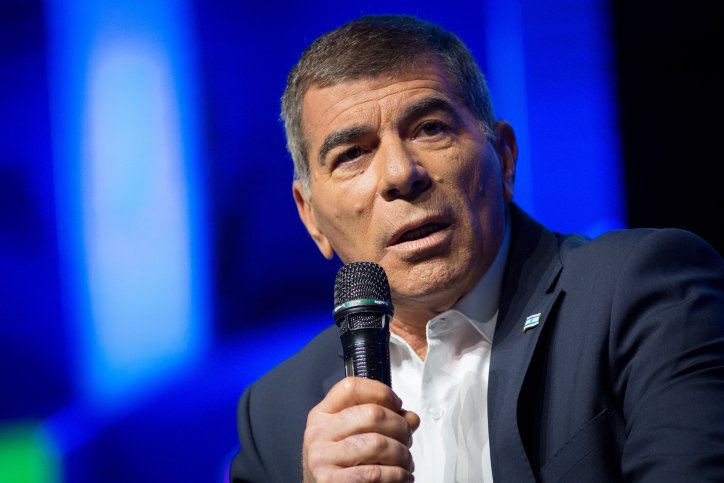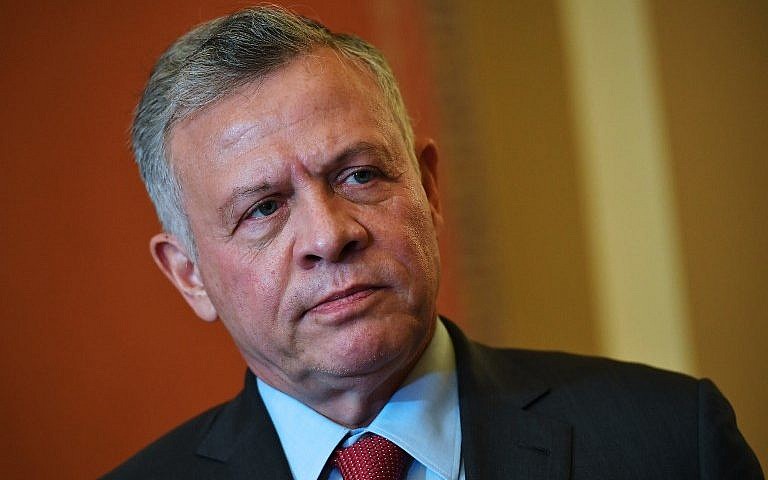Australia/Israel Review
Can Israel implement Trump’s Plan while appeasing Jordan?
May 28, 2020 | Herb Keinon

Israel-watchers abroad looking for cues as to whether the new Netanyahu-Gantz government will extend Israeli sovereignty over large swathes of the West Bank got little clarity from new Foreign Minister Gabi Ashkenazi’s maiden speech on the world stage on Monday, May 18.
Ashkenazi, in a changing of the guard ceremony at the Foreign Ministry with outgoing minister Israel Katz, sent mixed messages.
On the one hand, he praised US President Donald Trump’s “Deal of the Century,” which green-lighted Israeli annexation of 30% of Judea and Samaria under certain conditions.
“We stand before significant regional opportunities, foremost of which is President Trump’s peace initiative,” Ashkenazi said. “I see the plan as a significant milestone.”
Trump’s plan, he continued, “presents us with a historic opportunity to shape Israel’s future and its borders for the coming decades.”
The plan only presents Israel with a historic opportunity to shape its borders if Israel intends on changing its borders. That was one of Ashkenazi’s messages.
Yet on the other hand, in the very next breath, he said the plan will be moved forward while preserving Israel’s “peace treaties” with Jordan and Egypt. He said these treaties were a “strategic asset” that Israel needed to carefully guard, and that he sees great importance in strengthening the “strategic ties” with those countries.

Jordan’s King Abdullah: Strong opposition to any Israeli legal change in the West Bank
That was another of Ashkenazi’s messages, one that must be seen in the context of Jordan’s King Abdullah hinting broadly in recent weeks that he would annul the peace treaty if Israel annexed the Jordan Valley.
On the surface, therefore, Ashkenazi’s first speech is shot through with contradictions. On the one hand, Trump’s plan allows Israel an opportunity to set its borders; on the other hand, if Israel does so through extending sovereignty – as envisioned by the plan – it will cause difficulty with Egypt and Jordan.
So how does one square that circle?
One possible way is by extending Israel’s sovereignty to some of the land the US will allow Israel to annex, but not to all of it – especially not to the Jordan Valley, which is what Abdullah seems to be most concerned about.
Under the Trump plan, Israel can – in coordination with the US and as part of a willingness to negotiate a demilitarised state with the Palestinians – extend sovereignty to 30% of the territory. But who says this is an all-or-nothing proposition?
In order to take advantage of the unique opportunity provided by the Trump Administration, but at the same time prevent a total breakdown of the relationship with the Jordanians and keep a door open to Washington in the event that Joe Biden – who is opposed to annexation – wins the US presidential election in November, Israel could conceivably only extend sovereignty to the least contentious part of the 30%.
For instance, it could extend its sovereignty to areas that under all the previous peace negotiations were destined to stay part of Israel: Gush Etzion, Ma’aleh Adumim and settlements like Oranit in western Samaria that run close to the Green Line, but not extend sovereignty over the Jordan Valley.
Although this, too, would not please Abdullah, he could probably be convinced by the US – his biggest ally in the world – not to overreact if all that Israel is incorporating are areas that “everyone knows” will be a part of Israel in any eventual agreement.
The composition of PM Binyamin Netanyahu’s new Government, moreover, lends itself to this type of “compromise.” While this is the fifth government that Netanyahu is heading, it is the first one where the Likud is the party the furthest to the right inside the government.
In Netanyahu’s first government, from 1996-1999, Likud was outflanked on the right by the now-defunct National Religious Party and Tzomet. And in each of the three previous governments from 2009, Netanyahu looked over his right shoulder at Naftali Bennett’s Habayit Yehudi (“Jewish Home”) party (or a later configuration of it) and Avigdor Liberman’s Yisrael Beytenu (“Israel our Home”) party.
Politically, this was a comfortable position for Netanyahu to be in, especially when he was dealing with intense pressure to freeze settlements under the Obama administration. With two parties on his right very much opposed to any settlement restrictions, he was able to tell Washington when it pressed hard on this issue, that he could only go so far regarding restriction on settlement construction or risk losing his government.
This time the Likud is the right flank of the government. There is no other party to Netanyahu’s right to give him cover. And apparently he is comfortable with that, for if he wanted a party on his right for cover he easily could have roped in Yamina with a better offer.
But unlike the past when it was politically convenient for him to have parties pulling him from the right inside the government, now it may be politically convenient for him to have parties on his left. Because if Netanyahu does not think it wise to risk a rupture with Jordan over the annexation issue, he can always now say that Blue and White is tying his hands.
Yet, judging from Ashkenazi’s comments – comments surely in line with what was agreed during the coalition negotiations – Blue and White will tie Netanyahu’s hands on this matter to a certain degree, but not all the way.






